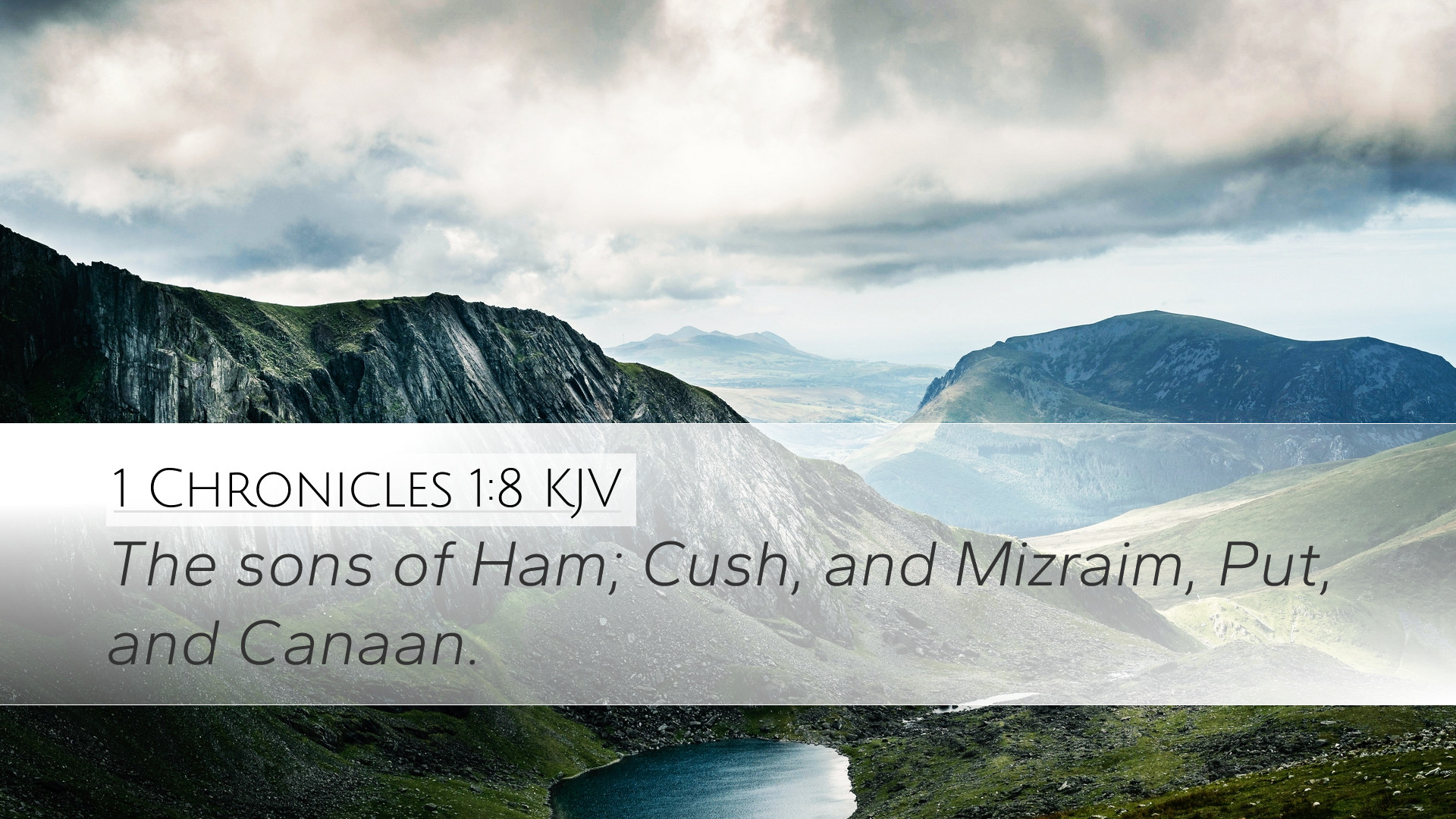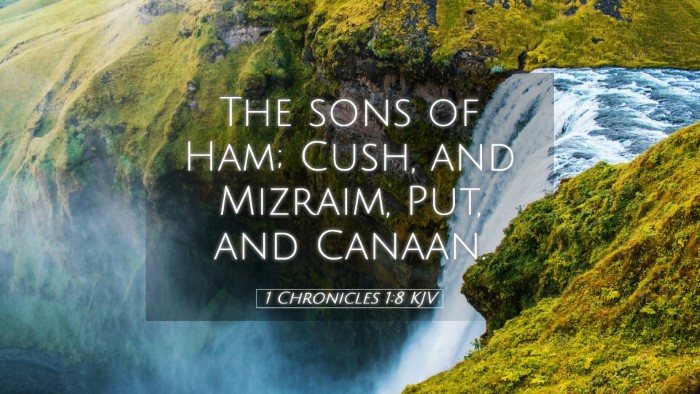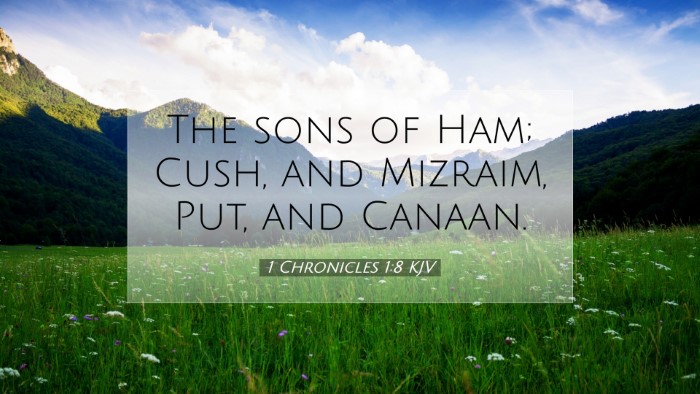Commentary on 1 Chronicles 1:8
Verse: "The sons of Ham: Cush, Mizraim, Put, and Canaan."
Introduction
The verse under examination presents a straightforward listing of the descendants of Ham. This genealogical record serves not only as a historical account but also bears theological significance. It is essential for understanding the early peoples and nations of the world as presented in Scripture.
Contextual Background
1 Chronicles opens with genealogies that provide a foundation for the Israelite identity. The genealogy serves to connect the nation to its patriarchs, showcasing God's faithfulness and the unfolding of His covenant. In this context, the descendants of Ham, through Cush, Mizraim, Put, and Canaan, are mentioned, each holding significance in biblical history.
Insights from Public Domain Commentaries
Matthew Henry's Commentary
According to Matthew Henry, the sons of Ham represent a lineage associated with various nations that played critical roles in the biblical narrative. Ham's descendants are often linked with regions that embody both cultural richness and moral lessons for Israel. Henry highlights that these names symbolize not just ethnic identities but also the broader implications of sin and dispersion following Noah's curse on Canaan.
Albert Barnes' Notes
Albert Barnes expands on the significance of each descendant named. He notes that Cush is often associated with regions south of Egypt, traditionally linked with Ethiopia. Mizraim corresponds to Egypt itself, representing a powerful nation in biblical history that at various times acted as both an oppressor and a refuge for God's people. Put, related to regions identified with Libya, and Canaan, the land promised to Israel, set the stage for much of the narrative's conflict and resolution. Barnes emphasizes the importance of recognizing these names as more than mere labels; they carry with them the weight of historical impact on the Israelites.
Adam Clarke's Commentary
Adam Clarke provides further insight by explaining the geographical and cultural implications of the descendants of Ham. He describes Cush as an area known for its wealth and civilization, while Mizraim was instrumental in the history of Israel, playing a dual role as both adversary and ally. Clarke particularly points out that the inclusion of Put and the designation of Canaan illustrate God's sovereignty in shaping nations and ultimately fulfilling His divine plan through human history. Clarke warns against taking these genealogies lightly, asserting their value in demonstrating God's overarching narrative of redemption.
Theological Reflections
This verse transcends a mere genealogical listing—it invites readers to explore the divine orchestration of nations and peoples in relation to God's covenant with Israel. The descendants of Ham illustrate the implications of sin, judgment, and grace. The existence of these nations serves both as a reminder of humanity's fall and of God's unrelenting purpose to redeem it.
Significance of Names
Each name in this verse represents not only a lineage but also a geographical and cultural reality important for understanding the complexities of biblical history. For theologians and scholars, the mention of these names invites deeper inquiry into the interplay of divine providence and human response throughout history.
Application for Today's Readers
Pastors, students, and scholars can draw from this genealogical account in several ways:
- Understanding Cultural Context: The nations descended from Ham are dimensions of the larger narrative that frames Israel's history and identity. This context is vital for interpreting the theological implications found throughout Scripture.
- Emphasizing God’s Sovereignty: God's choice to mention these descendants underscores His control over history and His ultimate plan for redemption, which extends to all nations.
- Reflecting on Human Nature: The mention of Ham's descendants allows for reflection on the human condition—where sin leads, and how God interacts with fallen humanity.
Conclusion
1 Chronicles 1:8 encapsulates a wealth of information that extends beyond the surface-level listing of names. It invites deeper investigation into the themes of genealogy, history, power, and divine purpose. As such, it holds significant value for those engaged in pastoral ministry, academic study, and personal reflection on the Word of God.


